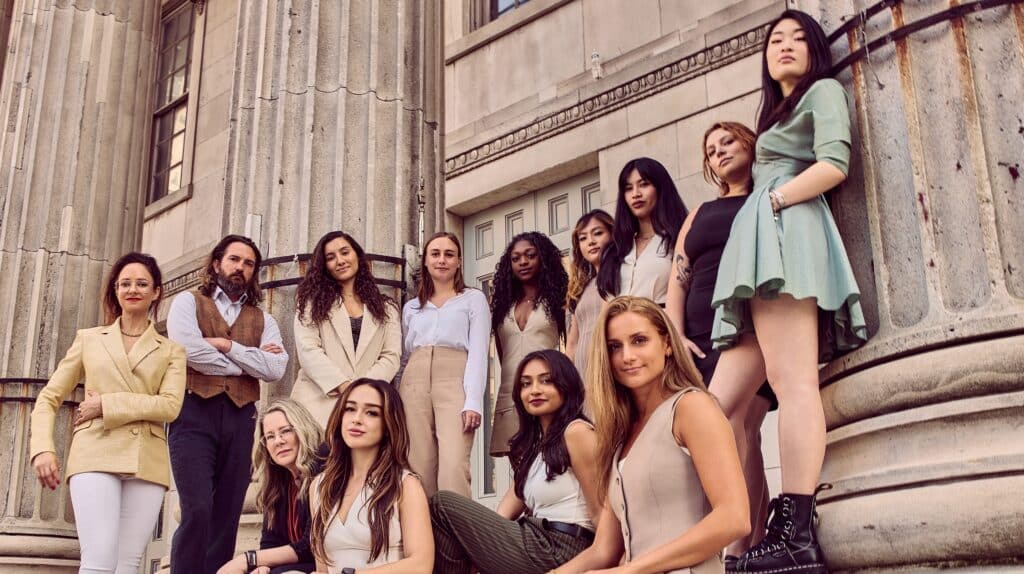The Supreme Court of Pennsylvania’s Decision To Overturn Bill Cosby’s Case Is Wrong. Here’s why.
Note to self: Don’t be a woman in Pennsylvania.
Last week, the Supreme Court of Pennsylvania made an egregious decision to overturn the infamous Bill Cosby sexual assault case – the first major prosecution of the #MeToo movement. This outlandish verdict not only sends a message to Cosby’s actual victims, all 60 of them (probably even more), but to all sexual assault victims.
Survivors are rightfully outraged that decades of hard work in forcing this adversarial justice system to hear their voices has seemingly gone to waste. This decision could create a chilling effect on victims who may be thinking about coming forward, especially against powerful individuals such as Cosby.
The Rape, Abuse & Incest National Network (RAINN) criticized the ruling: “We are deeply disappointed in today’s ruling by the Pennsylvania Supreme Court, and by the message this decision sends to the brave survivors who came forward to seek justice for what Bill Cosby did to them.” RAINN President Scott Berkowitz said in a statement.
Bill Cosby has been accused by 60 women of drugging and sexually assaulting them. He had admitted, on the record, to obtaining drugs (including quaaludes, his alleged drug of choice that has terrifying effects) and giving them to women whom he wanted to have sex with. These admissions were all consistent with the sexual assault allegations against him. He was convicted of all 3 counts of felony indecent assault and sentenced to 3-10 years in prison but is now being released from prison because of some shady alleged agreement with then-Pennsylvania-prosecutor-turned-Trump-lawyer Bruce Castor.
Here’s why the decision to overturn Bill Cosby’s case is wrong: Long story short, Castor fabricated a “deal” with Cosby for a non-prosecutorial agreement on his criminal charges so that he could “freely” testify during Andrea Constand’s 2005 civil trial against Cosby. At deposition, he admitted to the horrific things he had done — not just to Andrea, but to several other women — without invoking his right to plead the Fifth. This, the court claims, is a breach of Cosby’s Fifth Amendment right against self-incrimination and is somehow an injustice.
These are some of the reasons why the Supreme Court of Pennsylvania’s opinion, which led to Bill Cosby’s case being overturned, is problematic:
1. This verdict does NOT uphold due process.
This is not justice, period. The Pennsylvania Supreme Court decided they are not bound by fact, but by “the principle of fundamental fairness that undergirds due process of law in our criminal justice system[, which] demands that the promise be enforced.” Which brings us to the next point, however:
2. There was no “agreement” or “promise” to begin with.
What promise? There is ZERO contemporaneous documentation to be found regarding this elusive non-prosecution agreement. There is, however, an actual Pennsylvania state law that formalizes immunity agreements: 42 PA.C.S. 5947, stating that they require an actual court order. If Castor really wanted this so-called ‘deal’ to be kosher, he would’ve gotten a court order and made it official. But he didn’t, he just decided not to prosecute.
3. As the dissenting opinion pointed out, Castor’s spoken word during a press release means nothing.
Judge Thomas G. Saylor wrote, “I read the operative language – ‘District Attorney Castor declines to authorize the filing of criminal charges in connection with this matter’ — as a conventional public announcement of a present exercise of prosecutorial discretion by the temporary occupant of the elected office of district attorney that would in no way be binding upon his own future decision-making processes, let alone those of his successor.” Judge Saylor makes a very good point: Just because Castor announced to the media that he’s not authorizing Cosby’s prosecution at that time, doesn’t mean that his mere comment to the press is binding in any way.
4. Castor paraded his misguided actions to “help” Andrea’s civil case, when in retrospect, it did the exact opposite.
District attorneys do NOT handle civil cases. They do NOT have the authority to prosecute civil cases on behalf of individuals. District attorneys represent the state in criminal court. Castor had no role in Andrea’s civil claims, nor was he a party to the case. In fact, Andrea’s civil case would have been served even better if Cosby did plead the Fifth and had the jury draw their own negative inferences.
5. Castor and Andrea never even communicated with one another.
How can Castor make an agreement with Cosby that would greatly impact a civil case without even informing the other party in that case? This alone makes his motive seem suspect. Feels shockingly familiar, right? – Some controlling man with an inflated ego taking control over a woman’s choices without asking or even telling her. (#FreeBritney)
6. The way Castor has handled himself is just improper, unethical, and unprofessional.
Castor has smeared Andrea’s good name, called her an unreliable witness, doxxed her in the press release by giving away her job and position, questioned her delay in reporting, blamed her for inconsistencies in her statements, and intervened in 2015 to deter then-District Attorney from prosecuting.
7. Prosecutors are NOT advocates for victims.
Page 53 of the Pennsylvania Supreme Court’s decision states that, “Prosecutors are more than mere participants in our criminal justice system. … prosecutors inhabit three distinct and equally critical roles: they are officers of the court, advocates for victims, and administrators of justice.” This is simply untrue. Their job is to avenge society on behalf of the state when somebody breaks the law. It is a common misperception that victims think prosecutors are their attorney. Prosecutors are the government’s attorneys. Never forget this. The accused have a right to an attorney. Victims are the only ones in the system that usually do not have an attorney.
These are just a few of the reasons why the decision to overturn Bill Cosby’s case is wrong and outrageous, to say the least.
So why did the court go to such extreme lengths to find a way to get Cosby out of jail? It’s hard to imagine similar treatment for a poor person without access, fame or high-powered attorneys. We know Castor is identified as the bad actor here. We feel he is a feckless guy who disingenuously claimed that he was helping Andrea by not prosecuting Cosby and his propaganda morphed into something the appellate judges treated as fact. The true villains here (besides Cosby of course!) are the judges. They selected the case in the first place, which was a discretionary decision, and then invented an immunity agreement from thin air.
It’s important to remember, though, that Andrea succeeded in achieving a fair resolution to her civil claims. And offenders must repay society for their deeds not only through the criminal justice system, but they owe their victims too.
It’s natural for survivors to feel outraged and betrayed by the justice system that we all rely on. However, we urge you to not give up hope because we will fight for you. This is what we do and this is why we are here.
______
You can read the dissenting opinion here and Andrea Constand’s powerful victim impact statement here.
If you have experienced sexual assault, abuse, or rape, and would like to talk about your legal options contact us here or by calling 646-666-8908.




